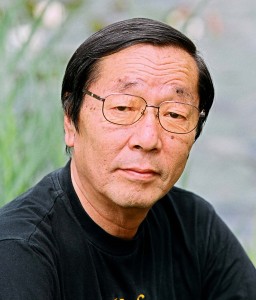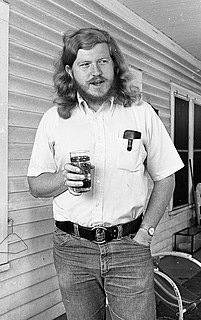A Quote by Carl Sagan
We go about our daily lives understanding almost nothing of the world.
Related Quotes
There appear to be no integrating forces, no unified meaning, no true inner understanding of phenomena in our experience of the world. Experts can explain anything in the objective world to us, yet we understand our own lives less and less. In short, we live in the postmodern world, where everything is possible and almost nothing is certain.
The way we live our daily lives is what most effects the situation of the world. If we can change our daily lives, then we can change our governments and can change the world. Our president and governments are us. They reflect our lifestyle and our way of thinking. The way we hold a cup of tea, pick up the newspaper or even use toilet paper are directly related to peace.
A great purposelessness has descended upon modern civilizations. People at large have lost any sense of the meaning and purpose of life; and without an understanding of our own purpose, there can be no true commitment. Whether that commitment is to marriage, family, study, work, God, relationships, or the simple resolutions of our lives, it will be almost impossible to fulfill without a clear and practical understanding of our purpose. Commitment and purpose go hand in hand.
We cannot escape from our daily routine, because it will go with us wherever we go.... God must be sought and found in the things of our world. By regarding our daily duties as something performed for the honour and glory of God, we can convert what was hitherto soul-killing monotony, to a living worship of God in all our actions. Everyday life must become itself our prayer.
What is important is to keep our mind high in the world of true understanding, and returning to the world of our daily experience to seek therein the truth of beauty. No matter what we may be doing at a given moment, we must not forget that is has a bearing upon our everlasting self which is poetry.
If we were not so single-minded about keeping our lives moving and for once could do nothing, perhaps a huge silence might interrupt this sadness of never understanding ourselves and of threatening ourselves with death Perhaps the world can teach us as when everything seems dead but later proves to be alive.
Nothing cuts the nerve of the desire to pursue holiness as much as a sense of guilt. On the contrary, nothing so motivates us to deal with sin in our lives as does the understanding and application of the two truth that our sins are forgiven and the dominion of sin is broken because of our union with Christ.





































